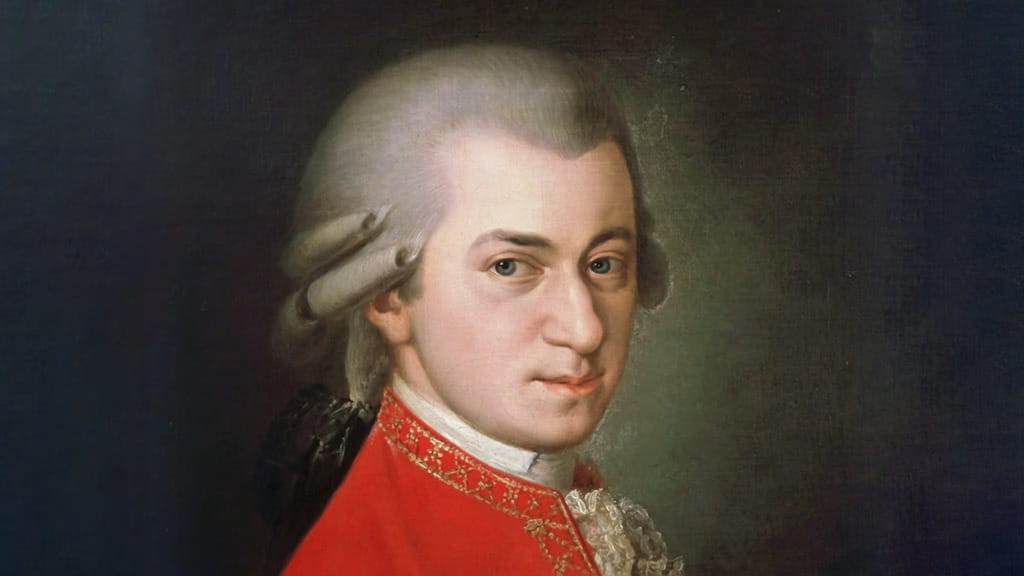The Life and Genius of Wolfgang Amadeus Mozart in 15 Facts
Discover the life and genius of Wolfgang Amadeus Mozart through fifteen fascinating facts, from his prodigious childhood and operatic triumphs to his financial struggles, mysterious death, and enduring legacy as one of history’s greatest composers.

Wolfgang Amadeus Mozart remains one of the most recognisable names in Western music. More than two centuries after his death, his music continues to enthral audiences, inspire musicians, and shape the very foundations of classical repertoire. His genius lay not only in his prodigious technical ability but also in his ability to convey profound human emotions with elegance, clarity, and beauty.
To better understand this remarkable figure, here are fifteen fascinating facts that shed light on Mozart’s life, artistry, and legacy.
1. A Child Prodigy Beyond Compare
Born in Salzburg in 1756, Mozart displayed extraordinary talent almost immediately. By the age of five, he was already composing short pieces, many of which survive today. His father, Leopold Mozart, himself a respected musician and pedagogue, recognised and nurtured his son’s gift, showcasing Wolfgang’s abilities to courts and aristocratic audiences across Europe.
2. He Toured Europe as a Young Performer
Between 1762 and 1773, Mozart embarked on extensive tours with his family, performing in major cultural centres including Paris, London, Vienna, and Munich. These tours exposed him to diverse musical styles and leading composers of the day. Meeting Johann Christian Bach in London, for instance, left a lasting impression on the young Mozart, shaping his approach to opera and symphonic writing.
3. He Wrote His First Opera at Just Eleven
At the age of eleven, Mozart composed his first full-length opera, Apollo et Hyacinthus. Although it was written for a school performance rather than a professional stage, it demonstrated a precocious command of dramatic pacing, vocal writing, and orchestration. This early foray foreshadowed the operatic genius he would later unleash in masterpieces such as The Marriage of Figaro and Don Giovanni.
4. He Was a Master of Every Musical Form
Unlike many composers who specialise in particular genres, Mozart excelled across the board. His output includes symphonies, operas, concertos, string quartets, choral works, and chamber music. Few composers in history have achieved such balance between breadth and quality. Whether crafting a simple piano sonata or a monumental opera, Mozart infused his music with elegance and inventiveness.
5. He Had an Ear for Popular Taste
Mozart was keenly aware of his audiences. Though he wrote for elite courts and opera houses, he also integrated popular elements into his music, from folk-inspired melodies to humorous characterisations. His comic operas, particularly The Marriage of Figaro and Così fan tutte, speak directly to everyday human concerns while maintaining sophisticated musical design. This ability to balance refinement with accessibility remains one reason for his music’s universal appeal.
6. His Operas Revolutionised the Genre
Before Mozart, many operas focused on mythological or aristocratic themes. Mozart, however, introduced a new depth of psychological realism. Characters such as Susanna in The Marriage of Figaro or the Count in Don Giovanni are not mere stereotypes but fully developed individuals, complete with contradictions and inner conflicts. His collaborations with librettist Lorenzo Da Ponte elevated opera to a new dramatic and emotional height.
7. He Was a Virtuoso Pianist and Violinist
Though known primarily as a composer, Mozart was also a formidable performer. His piano concertos remain benchmarks of the repertoire, in part because they reflect his own dazzling virtuosity. Contemporary accounts describe his ability to improvise elaborate variations on the spot and to charm audiences with his technical brilliance. He also played the violin skilfully, having been taught by his father from an early age.
8. His Relationship with Salzburg Was Complicated
Despite being born and trained in Salzburg, Mozart often found the city restrictive. Employed at the Salzburg court under Archbishop Colloredo, he grew increasingly frustrated with the lack of opportunity for artistic growth. In 1781, after a dramatic quarrel, he left Salzburg for Vienna, where he would spend the rest of his life, flourishing as a freelance composer.
9. He Was Financially Insecure
Contrary to the image of the wealthy genius, Mozart often struggled financially. Despite earning significant sums from concerts, commissions, and teaching, he lived beyond his means. Vienna’s expensive lifestyle, combined with his generosity and penchant for luxury, often left him in debt. Letters to friends and patrons reveal his repeated requests for loans, a reminder of the precarious life of freelance artists in the eighteenth century.
10. He Married Constanze Weber
In 1782, Mozart married Constanze Weber, a singer and cousin of his earlier romantic interest, Aloysia Weber. Their marriage appears to have been affectionate and supportive, though not without difficulties. Constanze helped manage Mozart’s career, copied out his manuscripts, and after his death, worked tirelessly to preserve and promote his legacy. The couple had six children, though tragically only two survived infancy.
11. He Wrote Over 600 Works in His Short Life
Mozart’s catalogue is staggering. The Köchel catalogue, which organises his works chronologically, numbers more than 600 compositions. These include 41 symphonies, 27 piano concertos, 23 string quartets, and more than 20 operas. What is perhaps most remarkable is not just the quantity but the consistently high quality of these works. Even his smaller pieces display inventiveness and beauty.
12. He Transformed the Symphony and Concerto
Mozart’s contributions to instrumental forms cannot be overstated. His later symphonies, especially Nos. 39, 40, and 41, represent pinnacles of orchestral writing, blending grandeur with intimacy. Similarly, his piano concertos combined virtuosic display with profound musical dialogue between soloist and orchestra. These innovations paved the way for later composers such as Beethoven, who built directly on Mozart’s achievements.
13. The Myth of His Requiem
Mozart’s final composition, the Requiem in D minor, has long been surrounded by myth. Commissioned anonymously by Count Franz von Walsegg, who intended to pass it off as his own, the work was left incomplete at Mozart’s death in 1791. Constanze arranged for his pupil Franz Xaver Süssmayr to complete it, and while questions remain about which sections Mozart himself finished, the Requiem has become one of his most beloved works. Its dark beauty and haunting intensity have only fuelled the mystique surrounding his final days.
14. He Died at Just 35
Mozart’s death in December 1791, at the age of 35, remains one of history’s great tragedies. The exact cause is uncertain, with theories ranging from rheumatic fever to kidney disease. Popular myths, such as poisoning by his rival Antonio Salieri, have been largely discredited, yet they reflect the enduring fascination with his premature demise. Despite his short life, his output rivals or surpasses that of composers who lived far longer.
15. His Legacy is Immortal
Few composers have achieved the universal recognition of Mozart. His music continues to be performed worldwide, cherished for its melodic beauty, structural clarity, and emotional depth. From concert halls to films, from study scores to children’s toys playing Twinkle, Twinkle, Little Star (a melody he famously set in variations), Mozart’s presence is everywhere. He stands as a symbol of human creativity at its finest, proof that genius, though fleeting, leaves an indelible mark.
Conclusion
Wolfgang Amadeus Mozart’s life reads like a tale of brilliance, struggle, and triumph. His music embodies both divine perfection and deeply human expression, bridging the gap between intellect and emotion, art and entertainment. Though he lived only three and a half decades, his contribution to music remains immeasurable.






